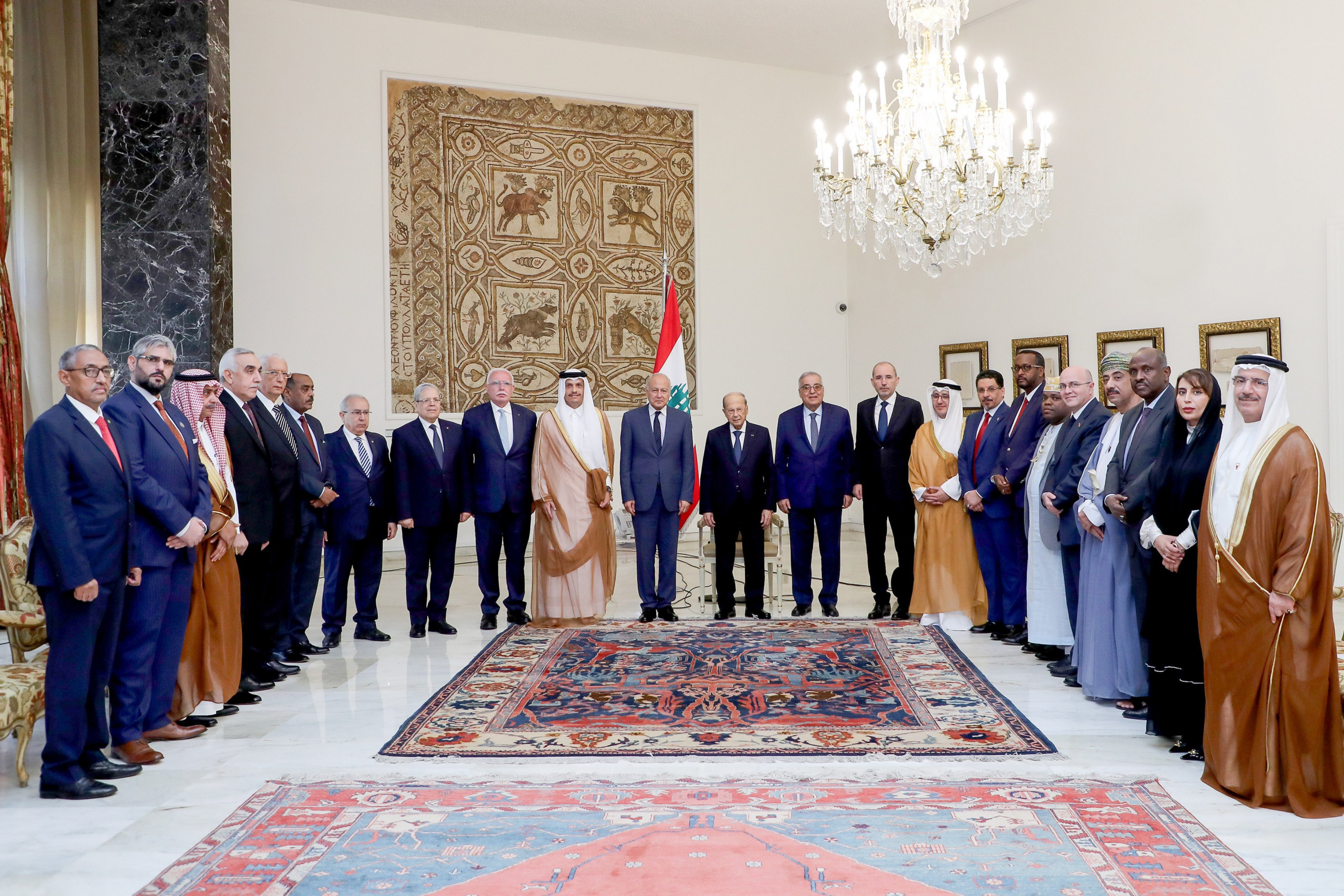The Gulf state said it will provide $60 million in support of the Lebanese army as the cash-strapped nation grapples with a worsening socio-economic crisis.
The restoration of the Syrian regime’s membership to the Arab League was on the agenda at a consultative meeting of Arab foreign ministers in Beirut on Saturday.
According to Jordanian media outlet Al Mamlaka, Secretary General Ahmed Aboul Gheit said the return of the Syrian regime to the bloc was raised during the Beirut meeting.
However, Aboul Gheit noted that the bloc did not make any decisions on the matter.
This comes after reports suggested moves by Algiers to reinstate the Syrian regime’s membership in the bloc by the time of the summit in November.
At the height of the Arab Spring in 2011, the bloc collectively voted to suspend Syria’s membership over concerns for human rights violations committed by the Bashar Al Assad regime.
Qatar participated in the latest meeting over the weekend, represented by Foreign Minister Sheikh Mohammed bin Abdulrahman Al Thani. This was Sheikh Mohammed’s first visit to Beirut since last year and the first trip since the May Lebanese parliamentary elections.
While countries in the region, including the UAE and Jordan, have warmed towards the Syrian regime, Qatar has maintained its staunch refusal to follow suit.
Doha was first to shut down its embassy in Syria and establish an embassy for the Syrian opposition at the height of the pro-democracy crackdown in 2011.
In February, Qatar’s foreign minister said his country maintains its position, noting that Qatar does not yet see any serious steps by the regime to prove its capability of returning to the bloc.
“We, as Qatar, see that there were reasons when the Arab League suspended Syria’s membership and those reasons remain until now,” explained Sheikh Mohammed, noting that normalising with Assad would be “unfair to the Syrian nation”.
Qatar has long called for a political resolution to end the war in Syria and the need to ensure the safe return of millions of refugees forced out of their lands in the ongoing war. According to the UN, there are 5,724,230 Syrian refugees as of 31 March.
In March 2021, Qatar, Turkey and Russia announced the launch of a “trilateral consultation process” to end Syria’s decade-old conflict amidst an apparent deadlock.
The developments of the initiative remain unclear in light of the ongoing Russian war on Syria.
According to Al Jazeera, the officials over the weekend also tapped into the Palestinian case, the war in Yemen, and the crises in Lebanon and Libya.
The meeting in Beirut was the third Arab League preparatory meeting to take place before the major Algeria summit, scheduled to take place in November.
A Syrian representative was not present at the meeting in Beirut on Saturday.
Qatar assistance to Lebanon
Meanwhile, Sheikh Mohammed discussed with his Lebanese counterpart Abdullah Bou Habib ways to enhance bilateral ties.
The visit also coincided with Qatar’s announcement to provide $60 million to support the Lebanese army as the cash-strapped nation grapples with a worsening socio-economic crisis.
“The announcement comes within the framework of the State of Qatar’s firm commitment to support the Republic of Lebanon, stand by the brotherly Lebanese people, and its firm belief in the importance and necessity of joint Arab action,” said Qatar’s foreign ministry on Thursday.
Last year, in another initiative, Qatar announced its support to the Lebanese army with 70 tonnes of foodstuff for every month for a year starting from July.
In February last year, Qatar’s foreign minister also expressed his readiness to support Lebanon’s economy once it forms a government.
In May, Lebanon held its first parliamentary elections since 2018 and the first since the 2019 revolution against the ruling elite. The revolution also saw the resignation of then-Prime Minister Saad Hariri.
Hariri ended his political career in January this year.
Since then, conditions in Lebanon have continued to worsen, especially after the currency lost 90% of its value to the US dollar. The public has also been unable to access savings and funds from local banks.
While the elections were seen as the last hope for many Lebanese worldwide, some have been left disappointed with the results, noting the newly-elected officials have contributed to the country’s crises.







